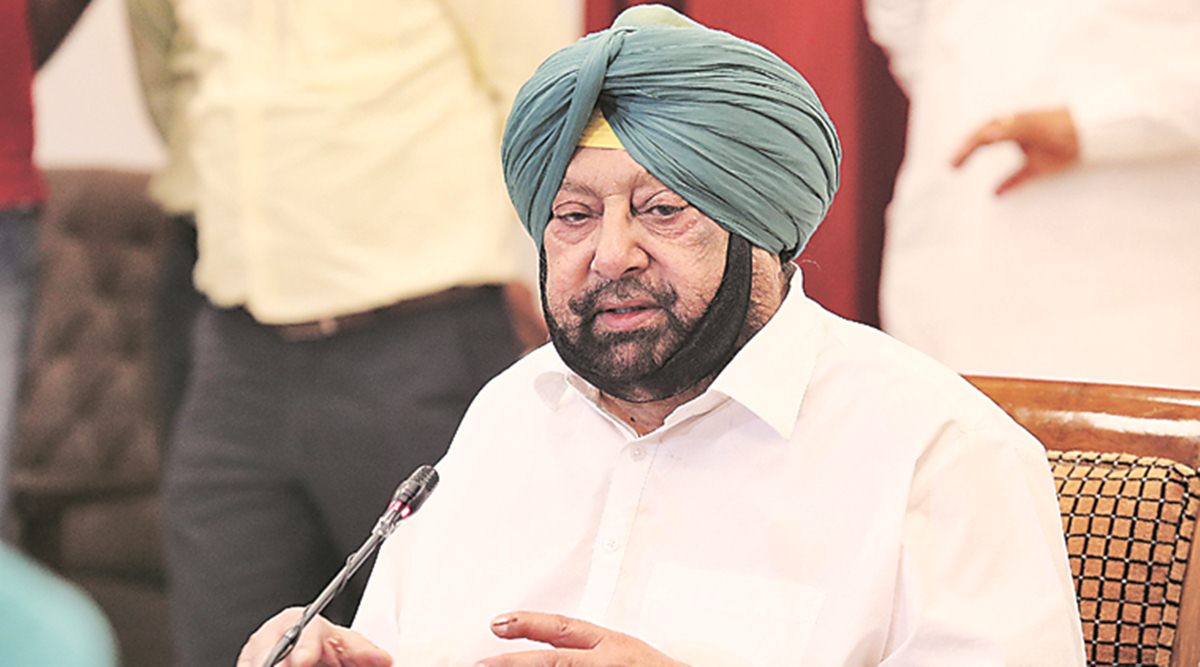 The Cabinet, which met under the chairmanship of Chief Minister Amarinder Singh here, also decided to a dedicated portal – www.anaajkharid.in — to ensure smooth paddy procurement, an official spokesperson said.
The Cabinet, which met under the chairmanship of Chief Minister Amarinder Singh here, also decided to a dedicated portal – www.anaajkharid.in — to ensure smooth paddy procurement, an official spokesperson said.Amid the Covid-19 pandemic, all rice delivery operations in Punjab, including allotment, registration and physical verification of rice mills, will undertaken online under the new Punjab Custom Milling Policy for 2020-21 that was given a go ahead by the state cabinet Tuesday. The paddy procurement season in Punjab begins October 1.
The policy aims at ensuring seamless milling of paddy and delivery of rice into the central pool from more than 4,150 mills operating in the state.
The Cabinet, which met under the chairmanship of Chief Minister Amarinder Singh here, also decided to a dedicated portal – http://www.anaajkharid.in — to ensure smooth paddy procurement, an official spokesperson said.
The step has been taken to ensure not many people have to be physically present in the offices to get the work done, which is possible online. The farmers will, however, have to bring the produce to the mandi.
This is for the first time that the whole gamut of yearly procurement operations – from allotment of mills, their registration, application of release order, deposit of fee and levy/ security, besides all important monitoring of stocks, will be done online now on a continuous basis, the spokesperson said.
All the state procuring agencies — Pungrain, Markfed, Punsup, Punjab State Warehousing Corporation (PSWC) and Food Corporation of India — and rice millers and all other stakeholders will operate and interact on the website, with the Department of Food, Civil Supplies and Consumer Affairs acting as the nodal department.
Under the policy, the sole criterion for allotment of paddy to mills this season would be the miller’s performance in the previous year and an additional percentage-wise incentive would be provided to mills as per their date of delivery of rice against milling of custom milled paddy in the previous year. Mills which had completed their entire milling by January 31, 2020, would be eligible for an additional 15 per cent of paddy milled in 2019-20, as per the policy.
Those who had completed delivery of rice by February 28, 2020 would get an additional 10 per cent of paddy.
For security of the stocks, millers this year would be required to furnish enhanced bank guarantee, equal to value of 10 per cent of acquisition cost of allocable paddy above 3,000 Metric Tonnes (MTs), as against 5 per cent on 5,000 MTs last year. Lowering of the threshold limit for submission of bank guarantee would bring an additional 1,000 mills within the direct monitoring ambit.
In addition, a miller shall have to purchase a minimum of 150 MTs of paddy in his own account or he shall deposit an amount of Rs 5 lakh (non-refundable) in state treasury and Rs 5 lakh in form of refundable security online in Pungrain account.
To guard against any paddy diversion, RO paddy (paddy against release order) has been brought into the ambit of custom milling security (CMR). Millers will be required to deposit Rs 125 for each MT of paddy stored with the concerned agency.
To tackle the issue of moisture content in CMR, the policy stipulates compulsory installation of dryer and sortex for a new mill and/or in case of enhancement of capacity.
Under the policy, newly established rice mills with 1 tonne capacity will be allocated 3,500 MTs of paddy while those with 1.5 tonne capacity will be allotted 4,000 MTs. Two-tonne capacity mills would be eligible for 4500 MTs, those of 3-tonne capacity will get 5500 MTs paddy. Every subsequent increase of one tonne capacity would be eligible for increase of 1000 MTs paddy.
The state is expected to procure 170 lakh MTs of paddy during kharif season beginning October 1, with total area under paddy sowing this year at 26.60 lakh hectares, down from 29.20 Lakh hectares in the previous season in line with the state’s crop diversification efforts.
Under the milling schedule prescribed, millers would have to deliver 35 per cent of their total rice due by December 31 and 60 per cent of total rice due by January 1, 2021; 80 per cent of total rice due by February 28, and total rice due by March 31.